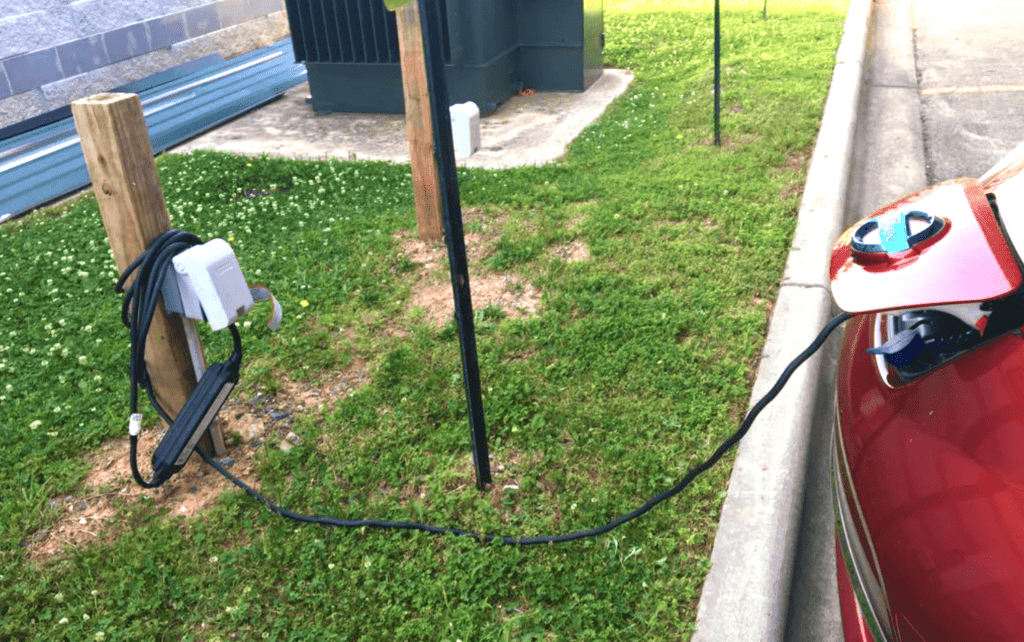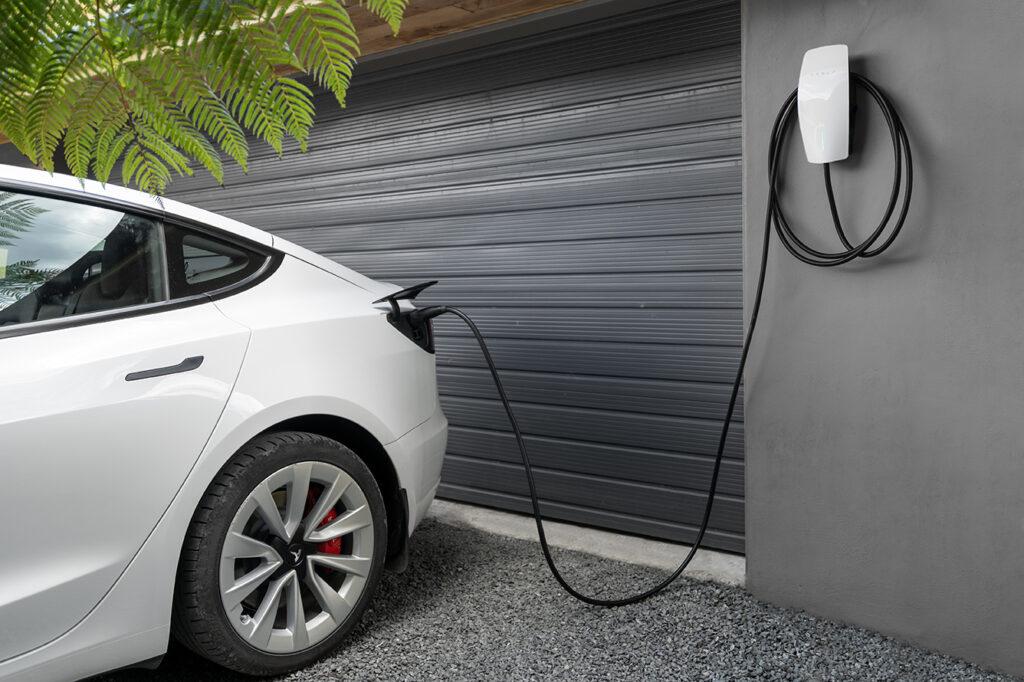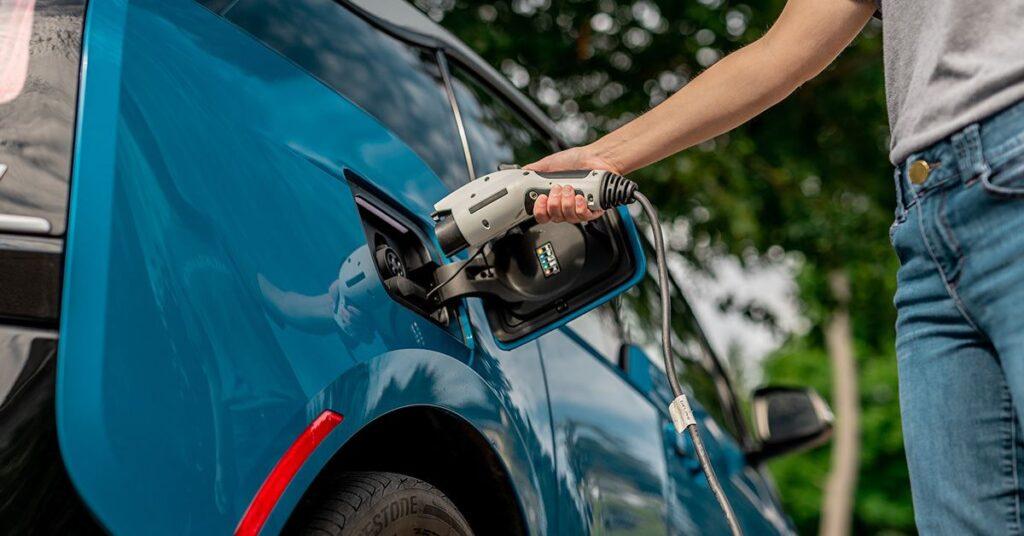
Charging your EV at home? Safety first.
Safety is an often-overlooked aspect of EV charging in New Zealand, with too many Kiwis guilty of using extension cords, double plugs and cheap adaptors manufactured overseas in order to charge their vehicles. Quite aside from the risk of electrocution, there is a chance of your home wiring sustaining damage from improper use of EV charging equipment; it’s just not worth the risk.
Wall-mounted charging units must be installed by a registered electrician, this is not the time to call your mate down the road who reckons he’s an expert in home wiring.

Future-proof your EV setup with a smart charger.
The cheapest way to charge your EV is to do it at home during off-peak hours on a dedicated charging unit.
Three-pin cables (which come with your EV as standard) are useful when you don’t have access to a charging station, but they are relatively slow, and they simply won’t cut the mustard with larger, more modern electric vehicles, as they can’t conduct the required amount of electricity.
“Smart chargers,” while more expensive than a standard wall charging unit, are the gold standard in home chargers. These future-proofing wunderkinds are capable of reducing the charge going through your cable when electricity costs are at their highest, and increasing it again as the cost drops, and are well worth the higher price tag.

Your battery’s Achilles heel: wear and tear
Your EV’s range will be reduced if the weather is cold (remember, heaters and demisters both contribute to battery drainage), if your tyre pressure is uneven, and if you are carrying heavy cargo (human or otherwise). So, it might pay to unload those bags of cement and potting mix from Mitre 10 sooner rather than later!
As with any lithium-ion battery, your wear and tear will increase exponentially by going from 100% charge down to nothing and back again on a regular basis, so be sure to try and keep your car charged within the golden 30 – 80% range for the majority of the time. Little and often is the ideal, although it won’t hurt to charge your vehicle to 100% every now and then, in preparation for longer journeys.
If you aren’t planning to use your EV for a few months, make sure it is partially, not fully, charged. Leaving your battery fully charged while the vehicle is not in use will decrease its longevity, and conversely, if the charge is too low, you run the risk of it fully discharging, which can result in permanent damage.
The best way to look after your battery? Don’t drive like a rally driver! Sharp acceleration and deceleration will drain your battery faster than you can say ‘Marcus Gronholm.’

Bollards are the bomb.
Greg at Juice Electrical has recently partnered with a local supplier to install both residential and commercial charging stations in Canterbury, and he is really starting to make a name for himself with his driveway bollard stations that not only look the part but make charging your car an absolute breeze.
So, if you’re in the market for an EV, don’t rush out and buy something unsuitable on impulse, do your homework and call Greg at Juice Electrical on 03 3796644 today.
